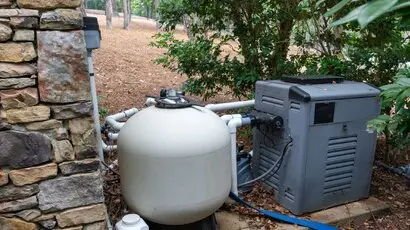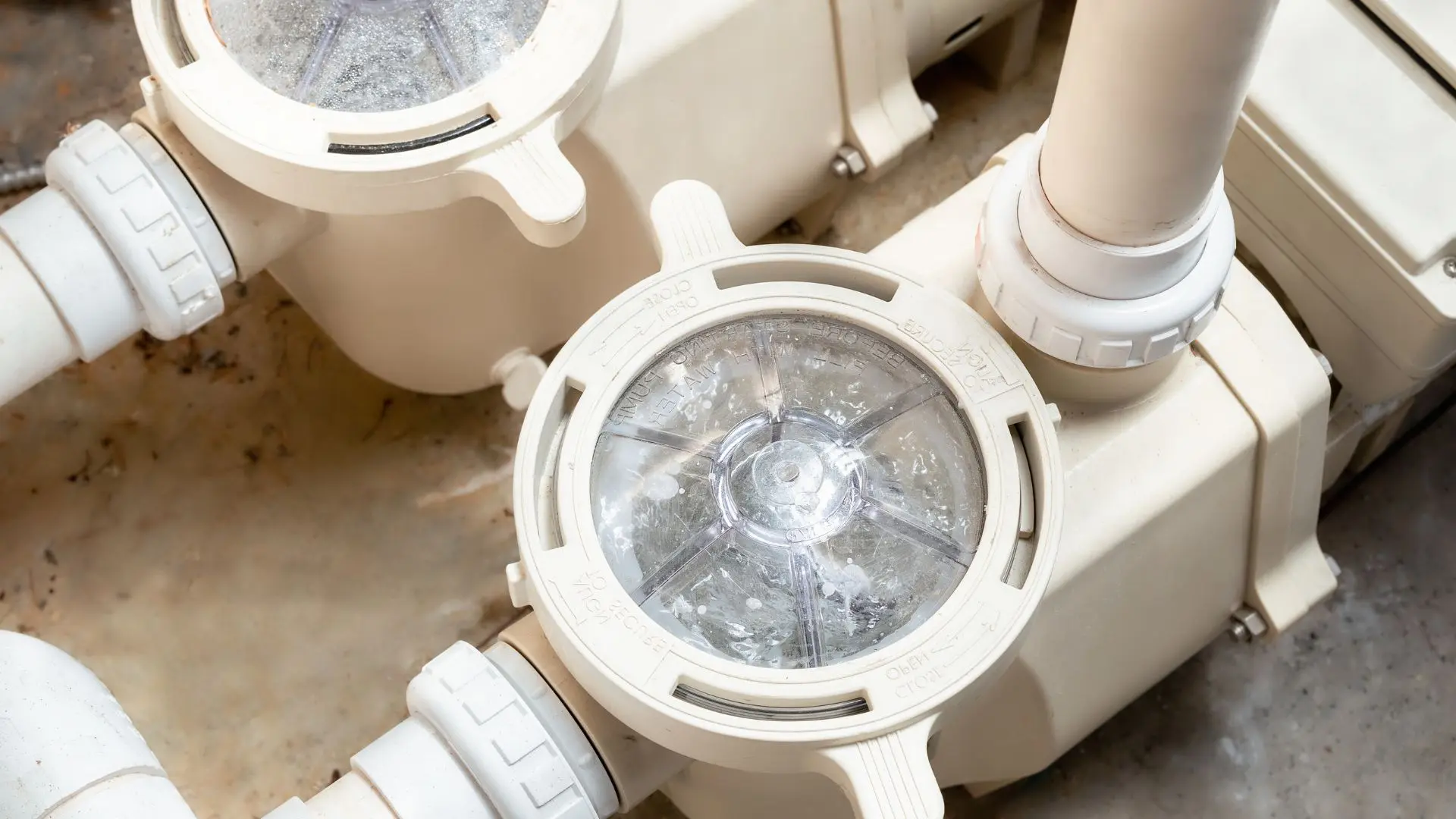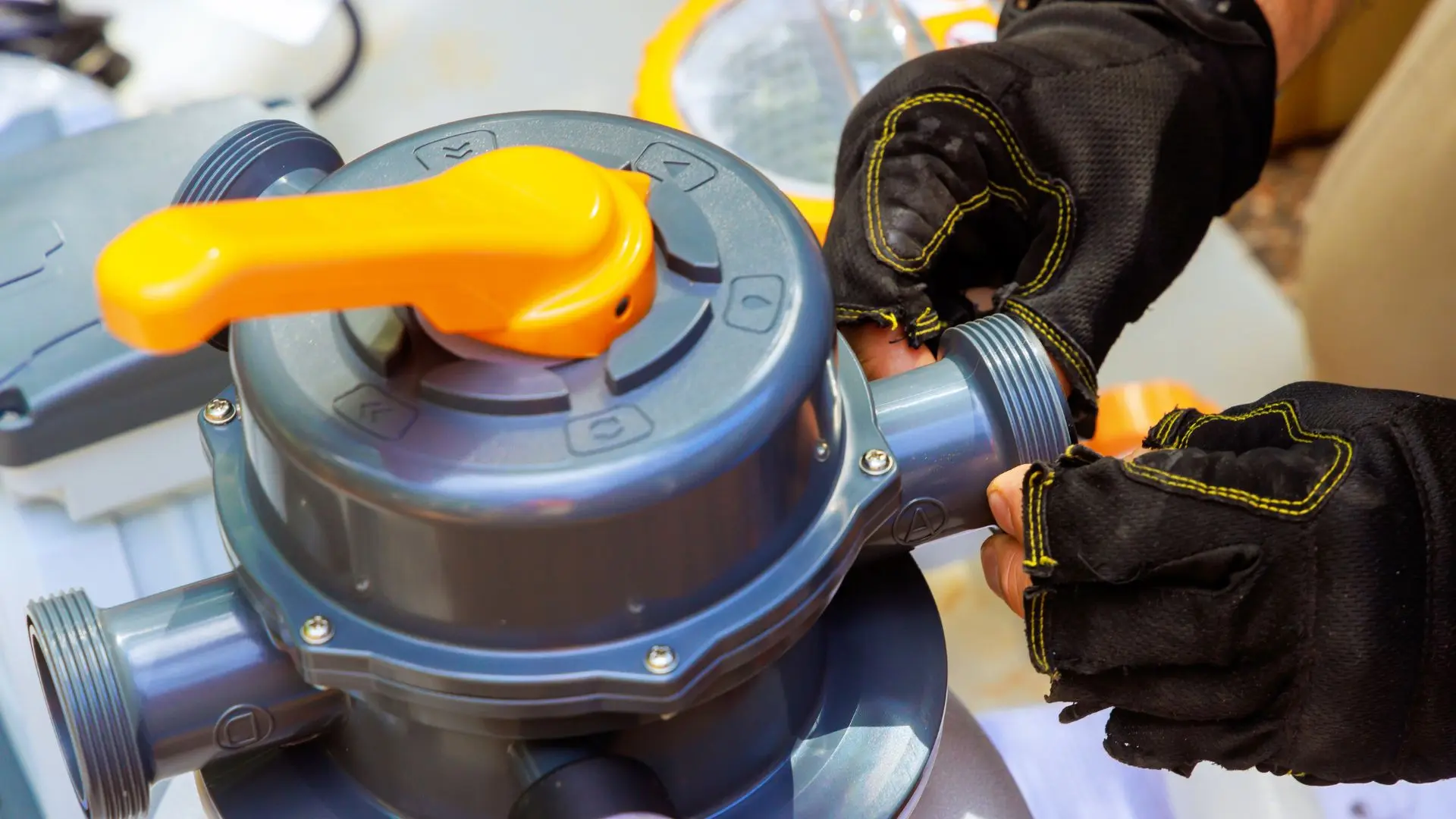
Get your free Melbourne Electrician quote today!
Our team of Melbourne Electricians is here to help you with any questions or concerns you may have. We’re committed to providing you with the best possible service and support.
Noticed odd sounds, weak circulation, or higher energy bills? Your pool pump might be on the verge of failure. In this article, we break down the most common red flags that signal a repair is due. Knowing what to look for can save you time, money, and a whole lot of stress come summer.
Aussies love their backyard pools — but here’s a stat that might make you raise an eyebrow: pool pumps can account for up to 18% of a household’s electricity bill. Yep, almost a fifth of your energy use could be from that little pump buzzing away.
But here’s the thing — it’s not just about the bill. A functioning pool pump is critical for maintaining water clarity, circulating chemicals, and ensuring your swimming pool stays clean, safe, and enjoyable. When it starts acting up, the ripple effects can mean murky water, overheating problems, and yep — costly repairs. So it pays to catch the early signs before a malfunctioning pool pump leaves you high and dry.
What is the Role of a Pool Pump
Think of your pool pump as the heartbeat of your entire filtration system — without it, your swimming pool simply can’t function properly. Its job is more than just moving water; it’s the central piece that ties together every part of your pool’s operation.
The primary function of a pool pump is to draw water from the pool and push it through the pool filter. This process helps remove debris, leaves, dirt, and even microscopic particles that cloud your water. But it doesn’t stop there. By circulating the water, the pump ensures that sanitising chemicals are distributed evenly, so every corner of your pool stays clean, safe, and algae-free.

It also helps maintain optimal water flow to other vital pool equipment, like the chlorinator, heater, or automated cleaning systems. If water isn’t circulating properly, those systems can’t do their job, and you end up with poor water quality, inefficient heating, and potential damage to connected devices.
On top of that, a well functioning pool pump supports the health of your pool filter, preventing it from getting overloaded and reducing the strain on its internal parts. And when everything works together efficiently, you get more than just clean water — you get energy efficiency, a longer lifespan for your gear, and fewer expensive surprises.
That’s why regular maintenance of your pump system — from checking seals and gaskets to inspecting the pump housing and internal components — is absolutely essential. It’s the smartest way to ensure your pool remains a sparkling, healthy oasis all year round.
Sign #1: Unusual Noises Coming from the Pump
Your pump should run quietly in the background. But if it suddenly starts throwing out strange noises — grinding, screeching, or even just a low hum — it’s time to listen up.
Grinding often means worn bearings, while screeching could be a sign of cavitation — when your pump is starved of water because of low pressure. That’s often caused by a clogged filter or air leaks. And that humming noise? Likely an electrical issue with your pump motor.
These sounds might seem minor, but left alone, they can lead to motor burnout, internal component failure, and a fast track to needing a new pump. Don’t wait for it to quit completely — get a pool professional in for a look.
Sign #2: Noticeable Decrease in Water Circulation
If the water in your pool is looking a bit lifeless or the skimmer’s barely doing its job, chances are your pump system isn’t performing at its best.
Reduced water flow or weak water flow can be caused by a clogged impeller, blocked suction lines, or even worn impeller blades. This affects your flow rate, and your pool starts to go cloudy, fast.
A faulty pool pump not only affects water quality but also puts extra pressure on your filtration system, potentially damaging other parts of your pool equipment. That’s why regular inspections and professional servicing are key to keeping your pool pump works efficiently and avoiding further damage.
Sign #3: Leaks or Water Pooling Around the Pump
Notice water pooling around your pump or damp areas nearby? That’s your pump waving a red flag. It might be a small leak, but it’s rarely a small problem.
Often, it’s worn seals, loose connections, or cracks in the pump housing that cause the issue. Even something as simple as a dodgy O-ring can compromise how well the pump running smoothly.
Leaks reduce energy efficiency, waste water, and over time can lead to electrical problems or rusted-out gear. So if you spot it early, act fast. Fixing a small leak now beats paying for major pump repairs later.
Sign #4: The Pump is Losing Prime or Struggling to Start
When your swimming pool pump struggles to get going or can’t keep water in the system (aka it’s losing prime), it’s usually a case of air sneaking in where it shouldn’t.
Think air leaks in the suction lines, cracked pipes, or a faulty lid O-ring. Even your timer settings can throw things off. If the pump motor is forced to work harder just to start, it risks overheating problems and serious wear and tear.
You might also notice low pressure or decreased water flow when this happens. Your best bet? Schedule professional inspections and keep up the regular cleaning to catch issues before they escalate.
Sign #5: Sudden Spike in Energy Bills
If your power bill’s suddenly gone sky-high, your pool pump could be the sneaky culprit. A struggling pump, battling internal resistance or ageing parts, works harder and uses more energy.
Things like a clogged filter, malfunctioning pool pump, or even just an older model that’s not designed for variable speeds can drive up your energy consumption.
Keep tabs on your pressure gauge and flow rate. If you see a drop in performance, that pump might need a once-over — or even an upgrade. Tackling these issues head-on improves energy efficiency and helps prevent costly repairs.
When Repairs May Not Be Enough: Considering Replacement
Sometimes, even the best pump repairs can only get you so far. If your pool pump is nudging that 8 to 10-year mark, or you’re calling for service more often than you’d like, replacement might be the smarter option.
Signs of wear like extensive corrosion, persistent electrical issues, or stubbornly weak water flow all point to a pump nearing the end of its life. Modern pumps are not only quieter and more reliable — they’re also far more energy-efficient.
Need help deciding? WP Electrical offers expert advice and professional installation to match you with the right pool filter and pump for your setup. We make sure your pool pump needs are sorted without the stress.
Preventative Measures: Keeping Your Pool Pump in Top Shape

Want to avoid all this drama? It’s simple — stay on top of regular maintenance. That means regular inspections, professional servicing, and making it a habit to regularly clean your pump basket, pool filter, and pump housing.
Look out for worn seals, loose connections, and clogged impellers — these are the usual suspects. Checking your pressure gauge, tweaking timer settings, and monitoring your flow rate are great habits to keep your pump running smoothly.
Also, don’t forget about water chemistry. Poor balance can stress out your pump system and reduce its lifespan. Good care means your swimming pool stays healthy, your pool pump works without a hitch, and you avoid those surprise bills from costly repairs.
Need Help? Leave the Pump Worries to Us
Noticed any of the common signs we’ve talked about? Maybe unusual noises, reduced water flow, a small leak, or a rising power bill? Don’t brush it off — the sooner you act, the better.
At WP Electrical, we’re your go-to team for pool pump repair, maintenance, and new installs. Our licensed sparkies know their way around everything from electrical problems to internal components and all the moving parts of your pump system.
Whether it’s basic troubleshooting, a full inspection, or getting you a brand-new setup with variable speeds, we’ll make sure your pool pump needs are sorted — professionally and efficiently.
If your pool pump’s been acting up, don’t wait. Contact WP Electrical today — we’re here to keep your backyard paradise running smoothly.
Published by: Pascal Harb17 October 2025